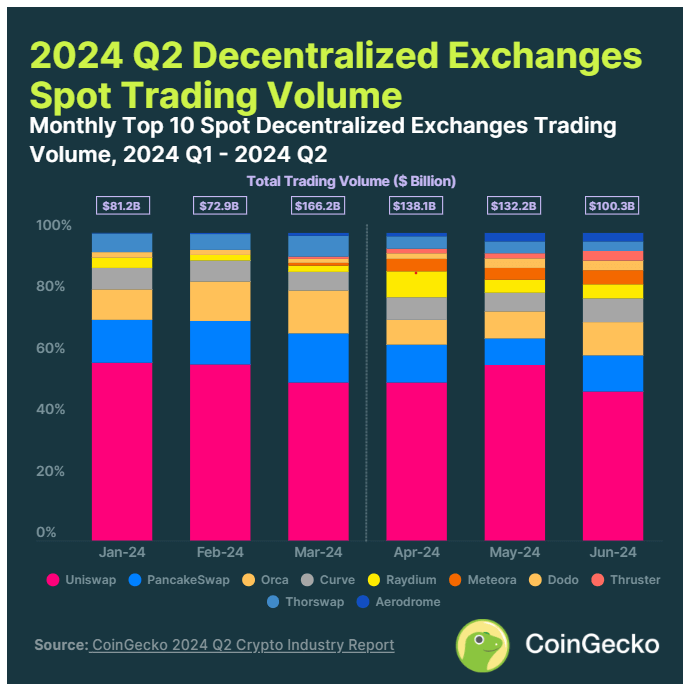Trading volumes on decentralized exchanges (DEXs) hit an all-time high compared to centralized exchanges (CEXs).
On July 29, Uniswap founder Hayden Adams highlighted the achievement, stating that “DEX market share is at an all-time high relative to CEXs.”
Adams pointed to a chart from The Block showing that DEX volume has increased since the beginning of the year.
The trend correlates with a broader bull market propelled by the U.S. Securities and Exchange Commission's (SEC) approval of spot exchange-traded funds (ETFs) for major digital assets such as Bitcoin and Ethereum.
Notably, DEX activity is also growing at a time of growing institutional and political interest in the cryptocurrency market, especially as the U.S. election approaches.
DEX trading volume increases
The above corroborates the findings of CoinGecko’s recently released Q2 report, which shows a significant shift in cryptocurrency trading patterns. The data shows that while spot trading volumes on centralized exchanges are declining, DEXs are seeing a notable increase.
In Q2, trading volume across the top 10 DEXs grew 15.7% from the previous quarter, reaching $370.7 billion. This growth was primarily due to the rise of meme coins and the surge in airdrops during the period.


Uniswap continues to be the leading DEX, with 48% of the market share by the end of June. New entrants such as Thruster and Aerodrome have also seen significant growth, challenging incumbent players in the lower tier of the DEX market.
In contrast, spot trading volumes on centralized exchanges fell 12.2%, bringing quarterly volume to a total of $3.4 trillion. Despite the decline, Binance continued to lead the market with a 45% share, while other exchanges such as Bybit, Gate.io, Bitget and HTX also performed well.
Mentioned in this article
